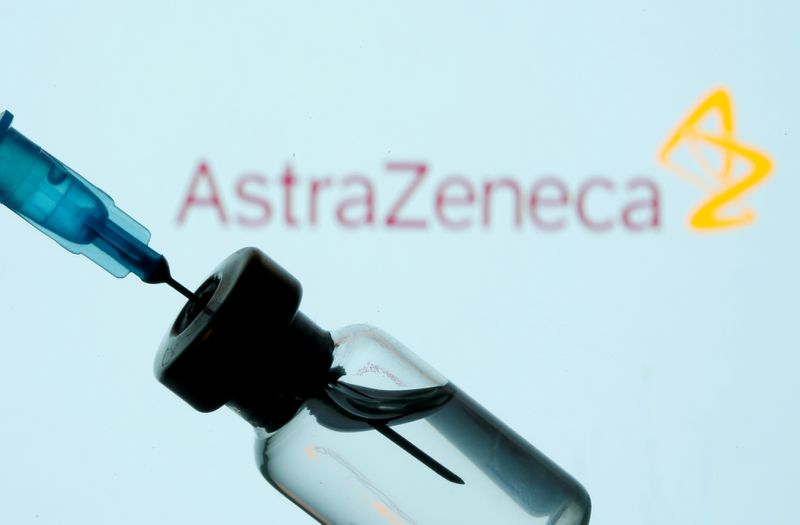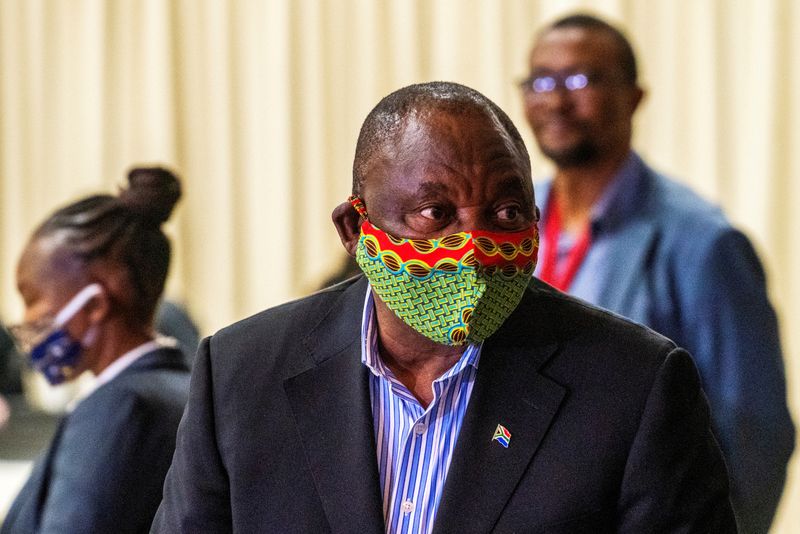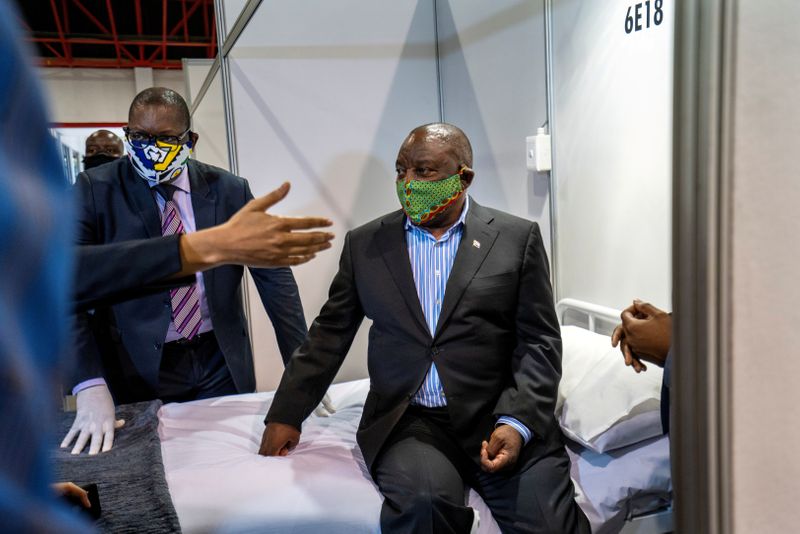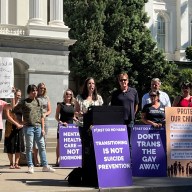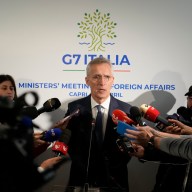JOHANNESBURG (Reuters) – South Africa expects the flight carrying its first 1 million coronavirus vaccine doses to arrive on Feb. 1, Health Minister Zweli Mkhize said on Wednesday, boosting efforts to curb a second wave of COVID-19 driven by a more contagious variant.
The AstraZeneca shots, produced by the Serum Institute of India (SII), are destined for sorely stretched healthcare workers.
South Africa has recorded the most coronavirus infections and deaths on the African continent, at more than 1.4 million cases and over 41,000 deaths to date. Since late last year, it has been battling a more transmissible virus variant called 501Y.V2.
Mkhize said that after the 1 million doses arrive at the OR Tambo international airport in Johannesburg they would be subject to technical processes including quality assurance over 10 to 14 days.
They can then be distributed to all provinces, he added during a public webinar. South Africa is due to receive a further 500,000 doses from the SII in February, also for its health workers.
Trade union NEHAWU said more doses needed to be secured since the 1.5 million coming from the SII would only cover 750,000 health workers, as AstraZeneca’s vaccine was administered in two doses.
South Africa later stands to receive around 12 million doses from the COVAX vaccine distribution scheme co-led by the World Health Organization, another 12 million from an African Union arrangement, and 9 million from Johnson & Johnson.
Mkhize spoke as South Africa’s main opposition party, the Democratic Alliance, began court action to force the government to release details of its vaccination plans.
Some scientists and health workers have publicly criticised the government for not securing doses sooner or outlining detailed immunisation plans.
A health ministry presentation showed there were around 1.25 million health workers to be vaccinated, of which around 350,000 had insurance.
Vaccines would be delivered free at the point of service. Medical schemes, funds that pool health insurance premiums, would pay for those with insurance, with the government paying for the uninsured.
Medicines regulator SAHPRA said earlier on Wednesday it had given fast-track approval to AstraZeneca’s vaccine for emergency use and that it was reviewing data on the shots of rival manufacturers Pfizer and J&J.
According to a National Treasury estimate, it could cost 20 billion to 24 billion rand ($1.3 billion to $1.6 billion) to vaccinate the government’s target of around 40 million people, or two-thirds of the population.
(Reporting by Alexander Winning; additional reporting by Mfuneko Toyana; Editing by Barbara Lewis, Mark Heinrich and Grant McCool)

